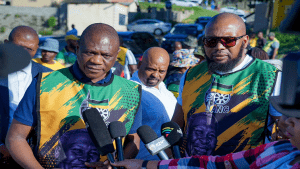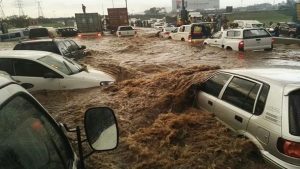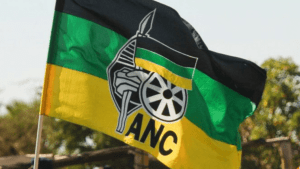Authorities must put in place measures and plans to mitigate the impact of disasters. That is according to Climate Justice Coordinator at the Southern African Faith Communities Environment Institute – Gabriel Manyangadze.
He was among the panelists in a webinar hosted by the University of KwaZulu-Natal discussing the role of the faith-based community in disasters, and the approach to helping victims of disasters.
According Manyangadze, research has shown that Southern Africa is already experiencing more tropical cyclones. He says KwaZulu-Natal and the northern part of the Eastern Cape can expect more frequent and more severe storms and flooding in the future.
This is after the devastating floods in April, which was the worst in a century. More than 400 people died, thousands have been left homeless, while damage to infrastructure like roads and bridges is estimated at R25 billion. Manyangadze says government and civil society need to be more proactive.
“Therefore, we are calling on all people and those who are in authority and those that can help to actually change the set-up that we have in KZN and also in the northern part of the Eastern Cape because we are going to be experiencing this more and more and to say let us warn in terms of choices of places where they are going to build their homes, assisting people before disasters strike. This is something that we are going to be living with over the next years and therefore we need to be prepared.”
KwaZulu-Natal has been experiencing wet conditions:
The Director of Refugees Social Services in Durban, Yasmin Rajah, says foreign refugees in the country are often the last to be helped during disasters. She says even many refugees in KwaZulu-Natal did not get assistance after the April floods due to xenophobic sentiments in some circles, or because they are not properly documented.
“Let me start with COVID, during COVID the first thing that happened is that our clients were not considered for assistance because their documents were not the same as South Africans. Some of them were undocumented. People we work with are seen as not in need of assistance. So, during these floods, for instance, it came after a lot of xenophobic and anti-emigrant sentiments coming from Operation Dudula, and basically what it did was either migrants and refugees were impacted, a number of them did not go to shelters and tended to seek refuge to friends or else try and figure out how to manage.”
The humanitarian organisation Gift of the Givers has had many years’ experience worldwide providing assistance in the wake of disasters. The organisation’s Imtiaz Sooliman explains what assistance they have provided after the floods in KwaZulu-Natal.
“In Tongaat and LA Mercy, we drilled 15 boreholes there already and also in other areas that did not have water even prior to the floods, in parts of Verulam, Umzinto, Harding and upgrading schools that have been damaged, cleaning the stormwater drain in the schools. The health department has asked us for assistance, R180 million worth of damage to health facilities and also to the M4 the community has got together to try and rebuild the bridge and using us to facilitate for that.”
Meanwhile, Doctor Khosi Kubeka from the University of Cape Town called on the youth to be actively get involved in programmes aimed at mitigating the impact of climate change.






